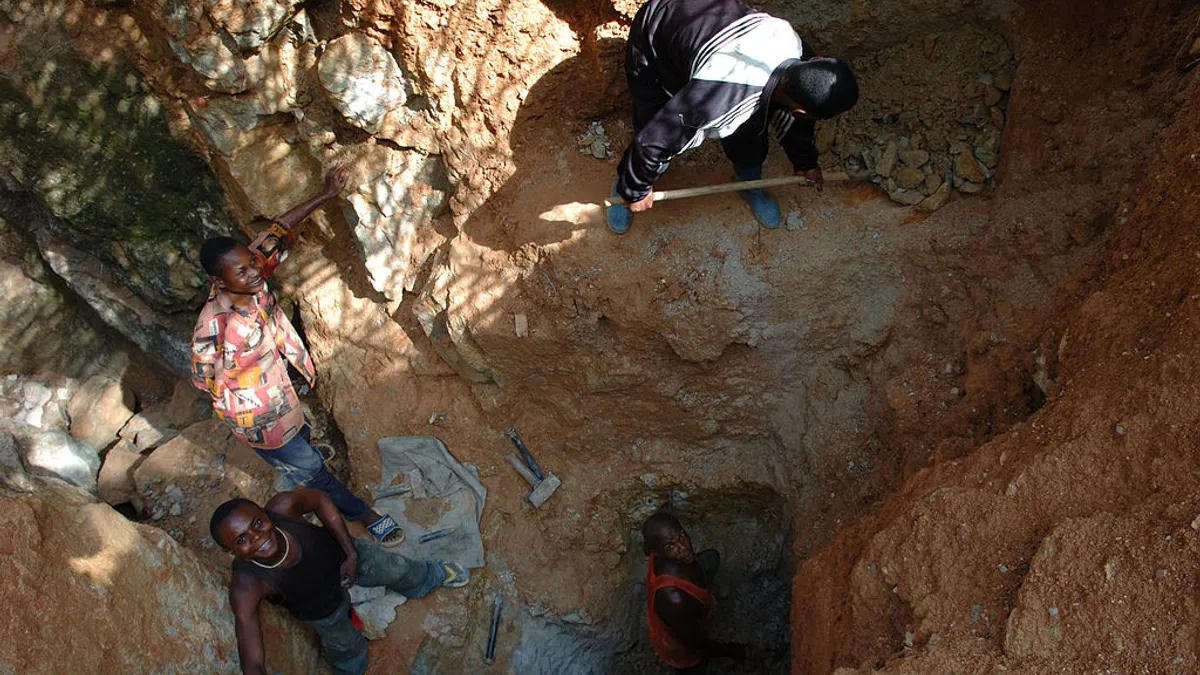Dive Brief:
- Human rights abuses exist outside the traditional scope of existing conflict mineral regulations, according to a recent report by Verisk Maplecroft.
- Tungsten, tin, tantalum and gold (3TG) are mined worldwide before being sent to smelters in China. In fact, only 2.5% of tin sent for smelting came from the Great Lakes Region of Africa, where current regulation focuses. At the most extreme, proceeds from mines in Myanmar and Colombia are used to fund rebel military operations.
- Tin and tantalum production are particularly prone to child labor abuses, due in part to the "artisanal" status of the mines where both are located. Even without child labor, other supply chain risks like sever water pollution are associated with mines worldwide.
Dive Insight:
Scrutiny over the use of conflict minerals have befallen giants like Apple and Starbucks, but efforts to stem sourcing from conflict zones are shrouded in controversy given the questionable impact of such initiatives.
In the end, existing conflict mineral regulations appear insufficient to address the human rights problem they seek to stem.
First, many minerals — like Apple's use of Congolese cobalt — are excluded from conflict mineral restrictions despite the fact they may fall in that category. Second, human rights abuses like child labor are rarely obvious and can be costly to spot. Lastly, existing regulations disincentivize companies from investing in one region although similar problems exist worldwide.
Apple's struggle with conflict minerals in the Democratic Republic of the Congo highlights the difficulty of enforcing the regulation. When reports first surfaced that the company's cobalt was tied to conflict zones, Apple chose to source exclusively from artisanal mines.
But clearly, artisanal mines were not free of supply chain risk, either. "A lot of the time, children aren’t necessarily doing the excavation themselves, but will be involved in ancillary tasks such as sorting, fetching and carrying," Verisk Maplecroft's Director of Commodities Research Stefan Sabo-Walsh told Supply Chain Dive. "The fact that these mines are generally small-scale artisanal and surface based is the only reason why children can play a role at all."
Now, the technology giant has ceased sourcing from the country altogether — but the supply has to come from somewhere. Using tin as an example, the report shows many other countries have high, if not higher, levels of risk in their mining operations.

As it stands, existing regulations appear insufficient to address supply chain risk and may simply be an additional operational cost. So when faced with human rights allegations, it is no surprise many companies argue it is more productive to work with suppliers to stem illicit practices over cutting them off altogether. If companies do not take the lead, who will?














